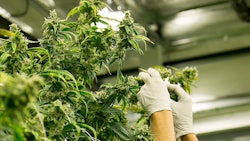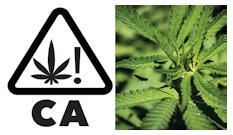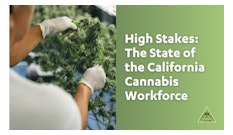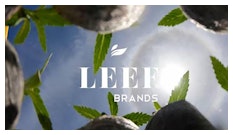
From high taxes and price compression to a still-thriving illicit market and a lack of legal retailers to sell their wares, many of California’s cannabis growers and brands are struggling to survive.
Now, the industry is rallying against a potential new threat: Assembly Bill 1207, also called the Cannabis Candy Child Safety Act.
Touted by some as necessary policy reform to keep children safe, the legislation clarifies provisions in the Medicinal and Adult-Use Cannabis Regulation and Safety Act (MAUCRSA), which the California Legislature passed in 2017 to govern the state’s medical and adult-use cannabis markets, to further define what could be appealing to children when it comes to cannabis packaging and advertising.
Perhaps most notably, A.B. 1207 defines “attractive to children” to mean the following, according to the bill text:
- Use of images that are attractive to children, including, but not limited to, images of any of the following, except as part of required health warnings:
- Cartoons, toys, or robots.
- Any real or fictional humans.
- Any fictional animals or creatures.
- Fruits or vegetables, except when used to accurately describe ingredients or flavors contained in a product.
- Any likeness to images, characters, or phrases that are popularly used to advertise to children.
- Any imitation of candy packaging or labeling, or other packaging and labeling of cereals, sweets, chips, or other food products typically marketed to children.
- The terms “candy” or “candies” or variants in spelling such as “kandy” or “kandee.”
- Brand names or close imitations of brand names of candies, cereals, sweets, chips, or other food products typically marketed to children.
- Any other image or packaging that is easily confused with commercially available foods that do not contain cannabis and are typically marketed to children.
- Anything else that the department determines in regulation to be attractive to children.
- Anything else that is attractive to children in light of all relevant facts and circumstances.
Nicole Howell, partner at cannabis-focused law firm Clark Howell LLP, raises concerns about how lawmakers defined what is attractive to children when writing and considering A.B. 1207.
“Even if we think that’s part of the solution, it seems like it would be a more effective approach to look at what research and science say about the best way to further make packaging not attractive to children, rather than just saying, ‘Well, here's what we think it should be,’ like these groups [that are supporting this bill],” Howell says.
Lindsey Renner, owner of Native Humboldt Farms, questions whether there has been any precedent set where depictions of humans or fruits and vegetables have been proven to attract children when used in packaging and marketing.
“I’m not really understanding who’s deciding what’s attractive to children, and it just sounds pretty absurd, to be honest with you,” she says.
The bill, authored by Assemblymember Jacqui Irwin, D-Thousand Oaks, passed the Senate in a 23-10 vote with seven abstaining on Sept. 14 before the Assembly approved it the same day in a final 63-0 vote with 17 abstaining.
A.B. 1207 now awaits action from Gov. Gavin Newsom, who received the bill Sept. 21 and has until Oct. 14 to sign or veto it, according to California’s 2023 legislative calendar.
Newsom’s office did not immediately respond to a request for comment on the legislation.
Getting It Right From the Start, a nonprofit organization that aims to advance public health and equity in cannabis policy, said in a Sept. 18 press release that adult-use cannabis legalization in California has allowed “hundreds of legal cannabis products that resemble some of children’s favorite candy, snacks, and sodas” to hit dispensary shelves.
“A robust legal cannabis market can flourish without marketing products that imitate leading candies and junk food or cartoons that are clearly attractive to children,” Dr. Lynn Silver, pediatrician and director of Getting It Right From the Start, said in a public statement. “The California Legislature has sent a clear message that we need to create a safer cannabis market that starts putting kids' health above profit. We urge Gov. Newsom to sign it and rigorously enforce it!”
Industry stakeholders, however, have expressed apprehension about whether the legislation will achieve its goal of protecting children, as well as concerns about how the measure’s restrictive policies will impact their businesses, especially at a time when many are already struggling to survive.
“Since the regulatory scheme was put into place, the industry’s never been allowed to advertise to target children—that’s always been a restriction,” Howell says. “This bill changes some of the specific requirements. … You can’t depict a human being on labeling and packaging, for example, which that hasn’t been specifically the rule before. The immediate impact that would have on the industry is that it would probably require a lot of redoing of packaging, which is incredibly expensive. And at a time where the industry is already hurting so much from being overtaxed and the drop in the market [prices], … it’s going to have a big impact on those companies to have to redo their packaging.”
Howell says none of her clients are interested in targeting children with their packaging or advertising, adding, “I don’t really know where that comes from. That has never been my experience in any conversation I’ve ever had. I don’t really know what that’s all about.”
If lawmakers do believe that there is an issue in California with children being exposed to cannabis, Howell says the legislative focus should be on how adults store and monitor the cannabis products they bring into their households.
“There’s child resistant packaging that’s required on all of these things because the industry has always been interested in protecting to make sure that cannabis doesn’t get into the hands of kids and that only adults get into it,” she says. “So, if the parents in the house are leaving things around that don’t have their child-resistant [packaging] on them anymore or aren’t protecting them, to me, that seems more likely to be the issue than the package has a person on the front of it and so the kid is attracted to it.”
Industry Impacts
Autumn Shelton, chief financial officer and partner at Autumn Brands, says A.B. 1207 “would definitely change the entire landscape of cannabis brands,” including her own.
Autumn Brands uses an image of a woman’s face on its packaging to highlight that it is a women-owned company, a practice that would be banned under the legislation.
“There are other small farms throughout California that also do regular agriculture—they do fruits and vegetables, and so they oftentimes put those together in their marketing,” Shelton says. “[A.B. 1207] would really affect them not being able to have this kind of imagery on the packaging.”
Native Humboldt Farms is one of these cannabis farms that also grows fruits and vegetables, and that is another part of Renner’s brand story that she fears she will no longer be able to share with California’s cannabis consumers.
“We came from building this sustainable way of life, and that’s part of our story and that’s part of our branding,” she says. “We wouldn't be able to show our veggie garden on our farm, or [that] we have these homesteader apple trees … and pear trees that have been there since the 1860s, and I use those to do natural farming and to breed indigenous organisms and add nutrients to my plants. That’s a huge part of my story that I wouldn’t be able to tell because of the wording where it says we wouldn’t be able to show any images of fruits and vegetables either.”
Shelton echoes Howell’s concerns about the high costs of repackaging and rebranding negatively impacting already struggling cannabis businesses in California’s marketplace and points out additional challenges associated with the impacts of A.B. 1207.
“The packaging alone could cost brands hundreds of thousands of dollars to redo that, but then the marketing and the advertising [restrictions] would just completely ruin the industry,” Shelton says. “Even pharmaceutical drugs have people in their advertisements on TV. So, for them to really try to take this to that extreme, this is not things that are actually attractive to children. It does not divert children from trying cannabis. There’s already so many other things in place for that. It will once again make it that much harder for cannabis brands to be able to be in this industry. And then when interstate commerce opens up, how do we compete with other states that don't have those types of restrictions?”
In addition, Shelton worries that A.B. 1207 will prohibit social equity and minority-owned brands from featuring people of color in their marketing and advertising, which will ultimately bar them from fully telling their brand story.
Renner says that while some provisions included in the bill make sense to her—such as prohibiting references to candy in cannabis packaging and advertising—she, too, is concerned about the language banning the use of real or fictional humans.
“That one piece of the entire bill could change everything for just so many social equity and legacy brands, farms, [and] any mom-and-pop shop,” Renner says. “For me, as a legacy grower, my entire company and my brand identity has been formed around me, life on my farm and my interaction with the plant. … I’m in probably at least half of the marketing photos on all of my social media sites, so if it passes and if the governor doesn’t veto it, my entire brand identity is going to be extremely affected by this. It’s pretty terrifying, to be honest.”
In order to comply with the bill, Renner says she would have to take down all Instagram photos of her with her cannabis plants on her farm, and she would no longer be able to create posts that show her in her garden alongside the plants.
These restrictions, she says, would essentially bar her from being able to share her brand story.
“I put a huge amount of time and effort into marketing and branding,” Renner says. “A lot of that is really my story, my story of the land and how it came back into my possession, and just me on the farm. And that’s really the only thing that’s been able to differentiate me as a very, very small farm from some of the larger companies. … If we can’t use humans—if I can’t use myself in my marketing—then really what is my brand? And it would be extremely hard to capture any more support for my brand if I wasn’t allowed to tell my story. And I feel like if I’m not allowed to show pictures of me with my cannabis or me on my farm, then I’m not really fully allowed to tell my story, and my story is my whole brand.”
‘A Blatant Attack’
Overall, Renner and Shelton view A.B. 1207 as a direct attack on the cannabis industry, and one that could ultimately undermine the whole marketplace.
“Anything that’s already attractive to children is already in the [MAUCRSA] statute,” Shelton says. “I think this is just someone trying to take it a step further, which is just an unreasonable bill. I don’t understand why the author would try to go after cannabis brands in this way.”
Renner echoes these concerns, and says it feels like the legislation is aimed specifically at legacy growers.
“I wholeheartedly feel this is a blatant attack on legacy mom-and-pop equity brands that clearly use fruits and vegetables or humans to tell their story in their marketing,” she says. “It really feels like it’s pointed directly at us. It feels like that’s really the only conclusion we can draw from this. And if the governor doesn’t veto it, that’s a pretty clear statement of them saying that we don’t support legacy, we don’t support equity, we don’t support … small farms or craft cannabis. Hopefully he vetoes it and if not, I think that we can say it’s a direct, blatant attack to shut us all down.”
Shelton says the legislation will only serve to harm legal operators who aren’t trying to target children, while enforcement is lacking against illicit operators who do put forth packaging and products that appeal to children.
“It doesn't make any sense, and that's why every brand is up in arms about this,” Shelton says. “It would be devastating if the governor does not veto the bill.”
Also a board member for the California Cannabis Industry Association, Shelton says many of the state’s industry organizations have band together to submit letters to the governor, urging him to veto A.B. 1207.
“The governor will be receiving more than a thousand letters explaining why it’s important to veto this bill,” she says. “It’s not going to help deter illicit operators. It’s not going to help deter children. There’s nothing about this that's reasonable.”
Renner also estimates that the industry has sent somewhere between 1,500 to 2,000 letters urging Newsom to veto A.B. 1207.
“Hopefully that’s something he can’t ignore,” Renner says. “But at the same point in time, the language and how it’s written really does seem so deliberate and blatant that I’m very worried that he’s not going to veto it.”
Renner says “there will be a bit of an uprising” in the industry if Newsom doesn’t veto the bill, and she plans to seek additional clarification on the A.B. 1207 should it become law.
“For me, if it goes through, I think that I would still continue to keep the pictures of me on my farm up on all of my social media and marketing [channels] because I also use it on marketing postcards and everything like that,” Renner says. “I think I would keep it up and I would make them tell me why it was attractive to children. I would actually fight it. I think I would … make them clearly define why those pictures are attractive to children. If it goes through, I think we’re still going to put up a good fight.”

























